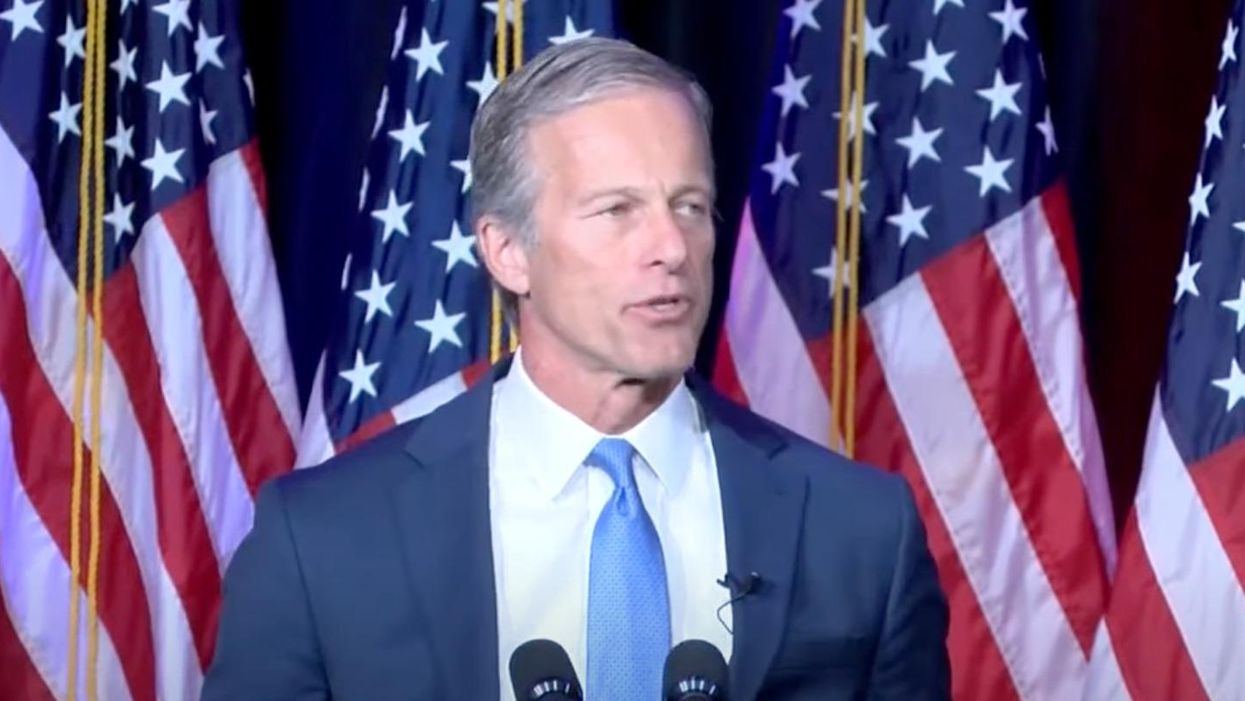Senate Republicans Will Force 'Major' Changes In House GOP Budget
House Speaker Mike Johnson (R-LA) was reminded how small his House majority is when, on Tuesday, February 25, a spending bill narrowly passed in a 217-215 vote. The bill didn't receive any Democratic votes at all, but only one Republican, Rep. Thomas Massey of Kentucky, voted "no."
Had there been a few more GOP defections, the bill would not have passed. And now, according to Politico, the bill faces another hurdle: Senate Republicans.
In an article published on February 26, Politico reporters Jordain Carney, Katherine Tully-McManus and Benjamin Guggenheim explain, "Despite a razor-thin 217-215 House vote Tuesday, GOP senators indicated Wednesday they would not accept Speaker Mike Johnson's fiscal framework as-is — heralding a rough road for President Donald Trump's legislative agenda on Capitol Hill.That's not to say they want to start from scratch: Most Senate Republicans said Wednesday that they were prepared to switch to the House's one-bill approach after spending more than two months pushing a competing two-bill plan. But they want major, contentious changes to policy choices embedded in the House plan."
According to a Politico source, conservative Sen. Majority Leader John Thune (R-SD) told senators "that there will need to be changes to the House budget and that there will be an informal meeting next week to start trying to reconcile the two sides."
Thune, the Politico journalists report, described the bill passed in the House as "a first step in what will be a long process, and certainly not an easy one."
Sen. Mike Rounds (R-SD) said of the bill, "It doesn't fit the president's plan in its current form, so we would have to make some changes."
Carney, Tully-McManus, and Guggenheim note, "Immediately after the House approved its plan Tuesday, Thune called for any Republican tax bill to include a permanent extension of the 2017 Tax Cuts and Jobs Act. That was an implicit criticism of the House budget blueprint, which allows for $4.5 trillion in net tax cuts — which tax writers in both chambers say won't be enough to allow for TCJA permanency along with Trump's other tax priorities."
Reprinted with permission from Alternet











